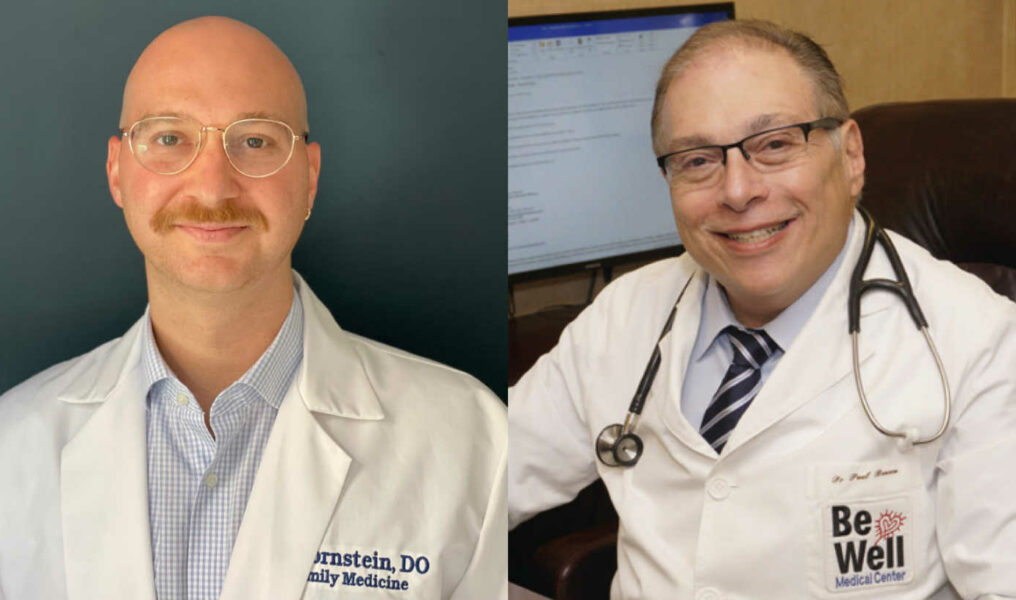May 2023 Advice to Be Well From Dr. Mark Bornstein and Dr. Paul Benson

AB: Hi Doctor. At our last visit, you recommended I start a statin medication to prevent cardiovascular disease, but when I researched the medication you gave me, there is so much negative information on the internet. Is there a better option?
Hi AB. I’m glad you are bringing this to me for a conversation rather than just not taking the medication. You are right — there is so much negative information out there about the class of medication I prescribed you, statins. Before you make your decision to take it or not, let’s do a dive into statin medications. Like everything in medicine, there is a lot of info on the internet, and it can be confusing to know what is the truth.
Indeed, there is a very large campaign against statins, and I honestly am unsure why. That said, let’s talk about what I do know about statins, including the negative side effects, its mechanism of action and the scientific studies that support the safety and efficacy of this class of medications.
First, one possible negative side effect of statins that is true is muscle aches. This occurs in about 2-8% of patients and is dose dependent. This means that the risk is much lower at smaller doses. This has been shown in multiple studies and is a reason that we monitor your symptoms and blood work when on the medication.
Now let’s talk about the mechanism of action of these medications. Statins inhibit an enzyme involved in the synthesis of cholesterol. They also are involved in reducing inflammation at the site of plaque in arteries and even stabilize existing plaque in arteries. When someone has a heart attack or a stroke, it is typically from a piece of plaque that breaks off of already formed plaque, migrates its way through arteries until it gets stuck in smaller arteries in the heart or brain. This cuts off the blood supply to these areas, which then causes someone to have a heart attack or a stroke as they are no longer getting blood supply to these vital organs. Statin medications will stabilize the plaque so that there is less of a chance of the plaque breaking off.
Next, study after study shows that statins decrease all forms of dementia. There is a recent 2022 meta-analysis (looking at multiple studies at once) that shows that a commonly prescribed statin, rosuvastatin, will cause a 20% decrease in all causes of dementia and a 41% decrease in Alzheimer’s dementia. Another commonly prescribed statin, atorvastatin, decreases dementia by 18%. These numbers are huge and leave no question. Statins are helpful for brain health and longevity.
I hope this helps you make your decision to take your statin medication. At times, it can be good to be skeptical of medicine, and I agree that there are many examples in our past that may leave one less trustful of medicine. I can assure you that this is not one of those instances. I hope this was helpful. Please reach out if you have any more questions.
RM: I’m a 50-year-old man.
I’m in seemingly good health and not on any medications. Over the last couple of months I have noticed that I wake up 3 to 5 times a night and have to urinate.I’m not having any discomfort, however the sleep deprivation is having an effect on me. Reducing fluids in the evening hours before bedtime makes little difference.Is this something I have to live with or can something be done about it?Hello RM. You need to have this medically evaluated by a medical provider. Many men have urinary problems like this as they get older from an enlarged prostate. This condition makes emptying the bladder difficult if not impossible. This can be a benign condition, however it can also be a symptom of prostate cancer.
Benign prostatic hypertrophy can usually be treated with medication., and there are more than a few to choose from. Some men with this condition will need surgical intervention, where a specialist will go through the urethra with a cystoscope and shave out overgrown prostatic tissue to relieve the symptoms.
You did not mention if there is a family history of prostate cancer. Prostate cancer is hereditary. Regular prostate exams and a blood test PSA (prostatic specific antigen) can detect prostate cancer. This is a very slow growing cancer and if detected early, there are several options to successfully treat it. Depending on one’s age and symptoms, sometime it is just watched and not treated. The short answer is: Go see a medical provider so you can have piece of mind and a restful night of sleep!
Since 1980 Dr. Paul Benson’s Be Well Medical Center has been an inclusive medical center celebrating diversity. Do you have a health related question for Dr. Paul Benson and Dr. Mark Bornstein? Submit your questions to bewelladvice@. This article is a sponsored editorial produced in collaboration with Be Well Medical Center. Between The Lines’s journalism is made possible with the support and partnership of advertisers like Be Well. Learn more at doctorbewell.com.




